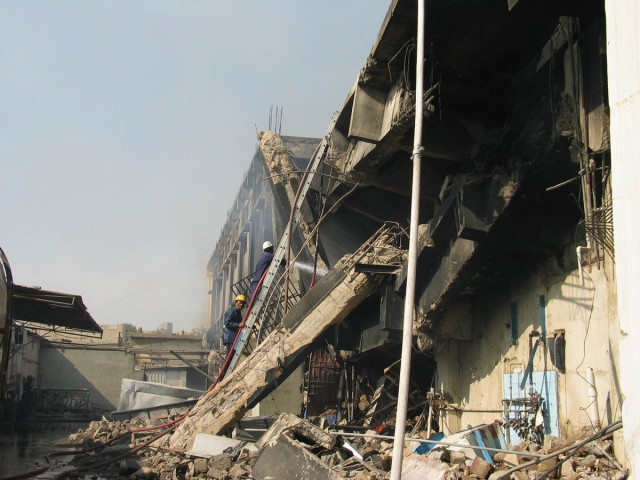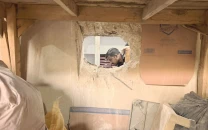Multiple hazards
Even after successive fires, we have failed to implement safety mechanisms in factories

They are not alone in their plight. Similar fires at workplaces in Karachi, Lahore, Rawalpindi and Faisalabad, where at least half a dozen factories or plazas have been completely destroyed by fire over the past two years have added large numbers to lists of the unemployed. Smaller fires, too, at shoe factories, at warehouses and other places have led to employers laying off workers to recover their own losses. Poor fire-fighting abilities, as seen at the SITE fire, of course add to the problem. But the most basic issue is the lack of fire safety mechanisms in place at factories, with laws openly flouted in this regard. Even after successive fires, we have failed to implement such measures. Safety exits, equipment to douse fires when they first break out and training for the workforce at factories could all help prevent devastation on the scale that we have seen, and the human misery that goes with it. Action is urgently required. Authorities need to step in to make work environments less hazardous and thus, for the future, prevent the scenes of mayhem we have seen over and over again. It is shocking that no lessons have been learnt from the incidents of the past. Quite evidently, it is time to act before the next fire breaks out and causes the kind of human tragedy we see each time — with its impact lasting way after the media images fade away.
Published in The Express Tribune, December 10th, 2014.
Like Opinion & Editorial on Facebook, follow @ETOpEd on Twitter to receive all updates on all our daily pieces.



















COMMENTS
Comments are moderated and generally will be posted if they are on-topic and not abusive.
For more information, please see our Comments FAQ